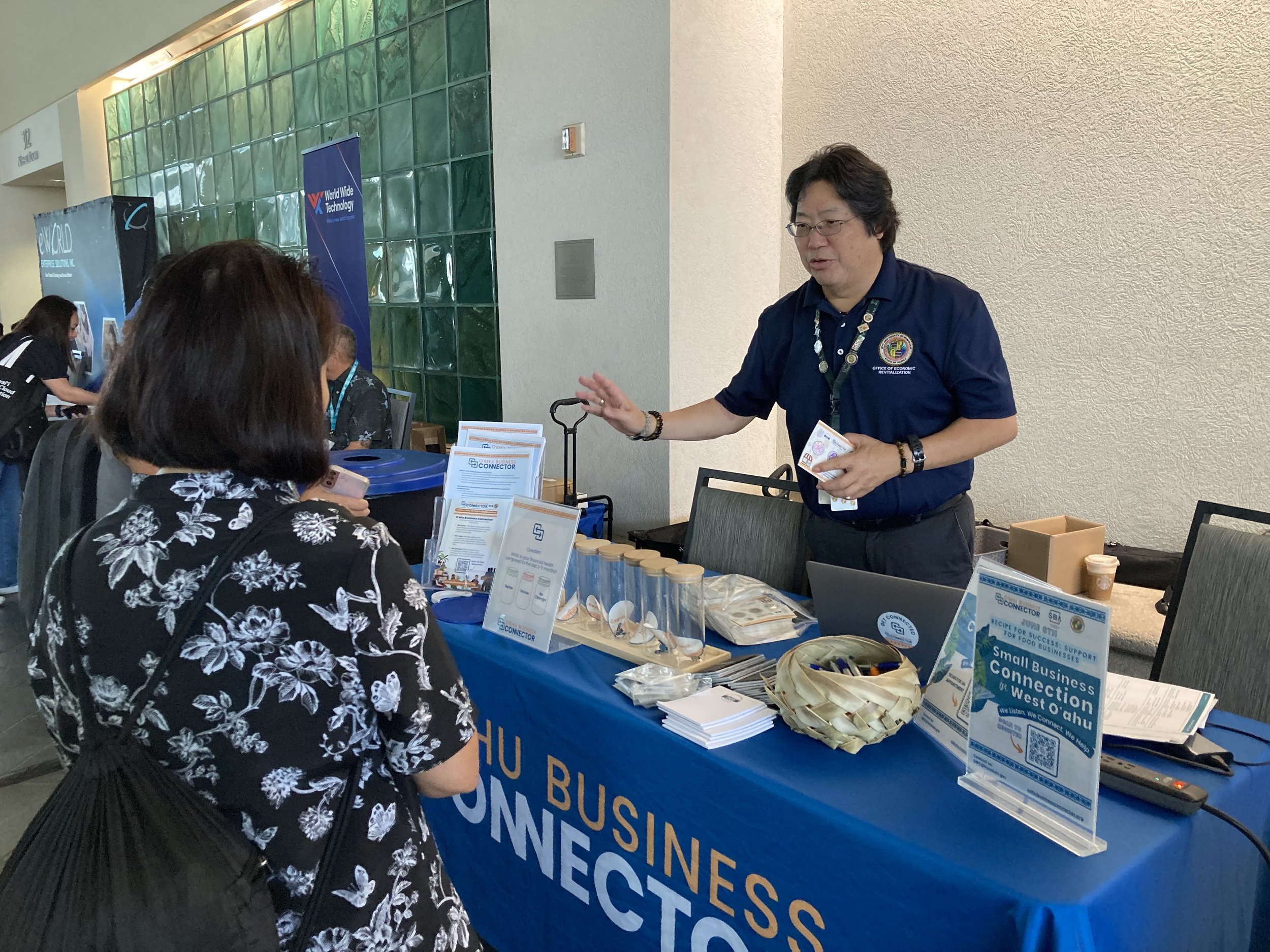Every Person Prospers.
The Office of Economic Revitalization (OER) Ke Keʻena Hoʻomohala Waiwai was established in the City and County of Honolulu in 2020 to provide leadership, information, and resources for Oʻahu's economic development.
Our Mission
On a mission to build a strong economy that improves the quality of life for every community, small business, and ‘ohana on O’ahu.
Our Vision
We believe a strong economy is about the quality of life it creates for the people.
We use real-world data and stories to create programs that lead to good jobs, resilient small businesses, and more access to healthy local foods.
Our Process
We value being proactive, transparent, and innovative to create economic initiatives that address the real needs of local families and businesses.
We work side-by-side with O’ahu’s people and businesses - listening, asking questions, providing critical support, and finding smart solutions that strengthen our economy and communities.
Our Programs
-

O‘ahu Business Connector Program
The O‘ahu Business Connector (OBC) program is part of the City and County of Honolulu’s strategy to support small businesses.
OER supports businesses and community growth by connecting them with resources and developing programs through in-person outreach and workshops.
This includes helping the public access information, offering technical assistance to small businesses, providing job training and placement, and supporting the market for locally made products.
-
Sustainable Agriculture and Food Systems Program
The Sustainable Agriculture and Food Systems Program provides resources for small farmers and producers in the City and County of Honolulu and supports the local food system infrastructure.
OER looks at the whole food system, like growing food and handling food waste, to meet Oʻahu's agricultural needs.
The program is working to boost agricultural production so Oʻahu residents can enjoy more locally grown products, take better care of our environment, and have more access to value-added, unique Hawaiʻi products.
-
Workforce Development Program
The Workforce Development program aims to diversify Oʻahuʻs economy by creating more support services and training opportunities for upskilling and career exploration.
Our programs and policies create good jobs that will move Oʻahu's economy into the future.
OER defines a good job as one that offers financial security, benefits that improve quality of life, supports a healthy family and community, adapts to our changing world, and gives back to the community and environment more than it extracts.
-
Innovation and Technology Program
The Innovation and Technology program is focused on broadband access and digital equity, by teaming up with community organizations to build a strong innovation and technology sector on Oʻahu.
The internet is a fundamental utility, and OER is committed to making access safe and affordable for everyone.
OER seeks to ensure that every Oʻahu resident has access to high-speed internet to promote equal opportunities for all to participate in a digitally connected world.
The program emphasizes connectivity and sharing the necessary knowledge and skills to use the internet effectively.
-
Regenerative Tourism Program
The Regenerative Tourism Program works with community and hospitality stakeholders to protect our environment, celebrate local culture, provide good jobs for our people, and enact the goals of Oʻahu’s Destination Management Action Plan (DMAP).
The program supports Oʻahu’s residents, communities, environment, cultural, historical, and recreational sites, ensuring they benefit from the visitors welcomed to our shores.
-

Community Equity Liaison Program
The Community Equity Liaison program is committed to supporting O'ahu’s economic growth by enhancing access to government services for immigrant and underserved communities on Oʻahu.
OER works closely with federal, state, and other city government agencies to improve understanding and interactions with Oʻahu’s immigrant communities.
The program’s mission is to serve as a bridge to essential resources and networks, empowering communities to succeed. We achieve this by fostering stronger community partnerships and civic engagement, creating pathways for economic mobility through education and career development, promoting language access, and improving digital literacy.







